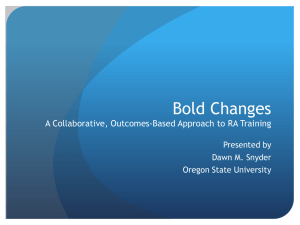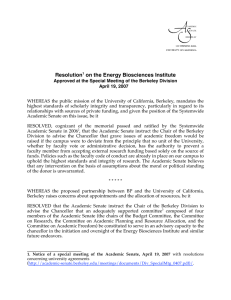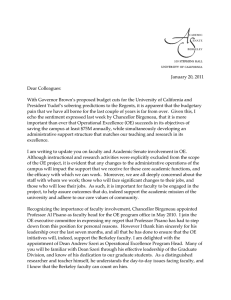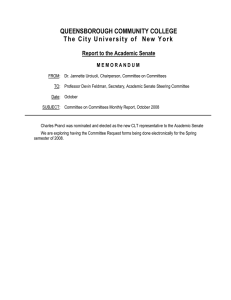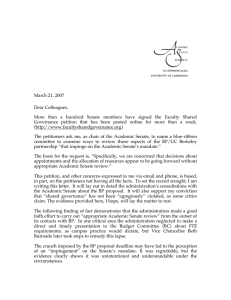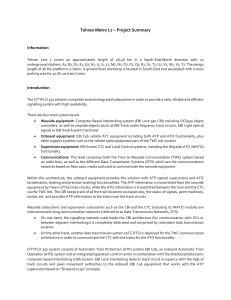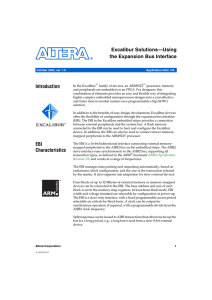February 16, 2007 Dear Colleagues,
advertisement
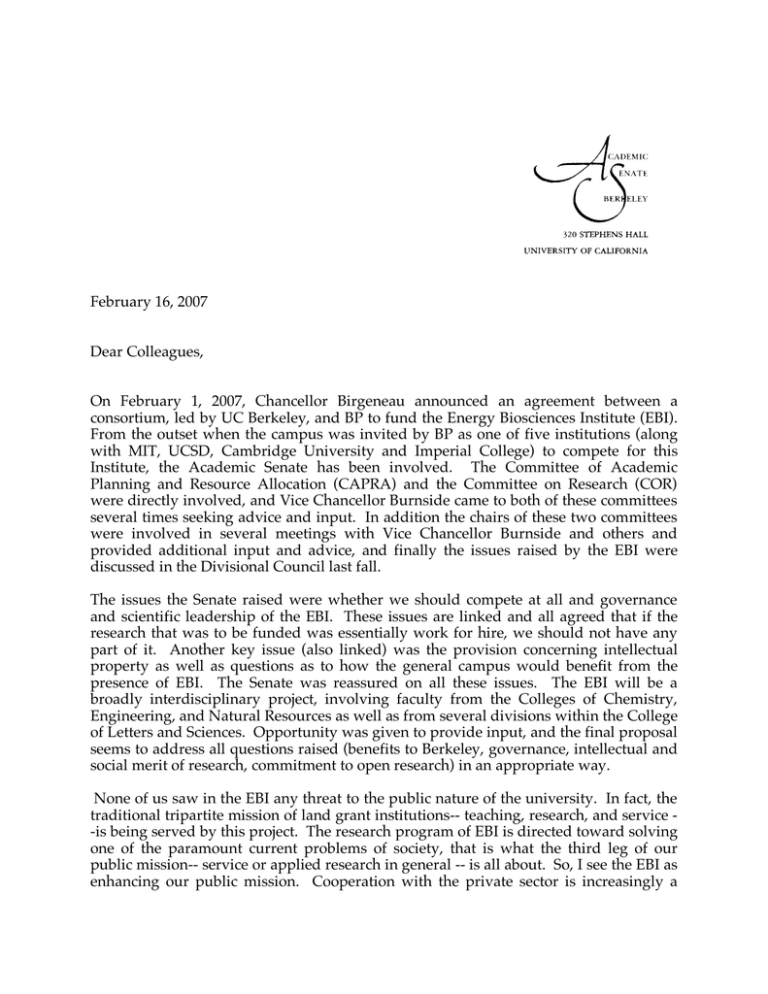
February 16, 2007 Dear Colleagues, On February 1, 2007, Chancellor Birgeneau announced an agreement between a consortium, led by UC Berkeley, and BP to fund the Energy Biosciences Institute (EBI). From the outset when the campus was invited by BP as one of five institutions (along with MIT, UCSD, Cambridge University and Imperial College) to compete for this Institute, the Academic Senate has been involved. The Committee of Academic Planning and Resource Allocation (CAPRA) and the Committee on Research (COR) were directly involved, and Vice Chancellor Burnside came to both of these committees several times seeking advice and input. In addition the chairs of these two committees were involved in several meetings with Vice Chancellor Burnside and others and provided additional input and advice, and finally the issues raised by the EBI were discussed in the Divisional Council last fall. The issues the Senate raised were whether we should compete at all and governance and scientific leadership of the EBI. These issues are linked and all agreed that if the research that was to be funded was essentially work for hire, we should not have any part of it. Another key issue (also linked) was the provision concerning intellectual property as well as questions as to how the general campus would benefit from the presence of EBI. The Senate was reassured on all these issues. The EBI will be a broadly interdisciplinary project, involving faculty from the Colleges of Chemistry, Engineering, and Natural Resources as well as from several divisions within the College of Letters and Sciences. Opportunity was given to provide input, and the final proposal seems to address all questions raised (benefits to Berkeley, governance, intellectual and social merit of research, commitment to open research) in an appropriate way. None of us saw in the EBI any threat to the public nature of the university. In fact, the traditional tripartite mission of land grant institutions-- teaching, research, and service -is being served by this project. The research program of EBI is directed toward solving one of the paramount current problems of society, that is what the third leg of our public mission-- service or applied research in general -- is all about. So, I see the EBI as enhancing our public mission. Cooperation with the private sector is increasingly a part of carrying out this mission, but we need to structure our relationships with the private sector in ways so as to preserve the integrity of the university. The Senate plans to hold a campus forum in the near future to discuss the issues raised by this agreement. I hope you will attend and make your opinions known. Sincerely, William Drummond Chair, Berkeley Division of the Academic Senate
